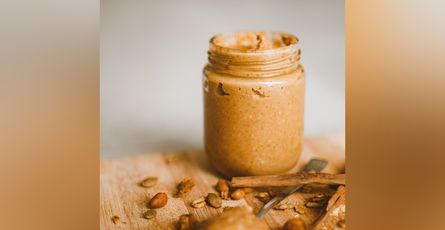Are Mangoes High in Sugar Content? Exploring the Sweetness of This Tropical Fruit
-
 Sofia Cruz
Sofia Cruz
- 2 July 2023

Mangoes are a delicious and nutritious fruit that are enjoyed by people all over the world. They are known for their sweet and juicy flavor, but some people may wonder if they are high in sugar content. While mangoes do contain natural sugars, they are also packed with nutrients that make them a healthy addition to any diet.
According to various sources, mangoes have a moderate to high sugar content compared to other fruits. However, the amount of sugar in mangoes can vary depending on the variety and ripeness of the fruit. Some mango varieties, such as Ataulfo mangoes, contain less sugar than others. In addition, the fiber content in mangoes can help regulate blood sugar levels, making them a good choice for people with diabetes.
Despite their sugar content, mangoes are a great source of vitamins and minerals. They are high in vitamin C, vitamin A, and potassium, and also contain antioxidants that can help protect against disease. Additionally, the fiber in mangoes can aid in digestion and promote feelings of fullness, making them a satisfying and healthy snack option.
Nutritional Information of Mangoes
Mangoes are a delicious tropical fruit that are enjoyed by many people around the world. They are not only tasty but also packed with nutrients that are essential for good health. Let’s take a closer look at the nutritional information of mangoes.
| Nutrient | Amount per 100g |
|---|---|
| Calories | 60 |
| Protein | 0.8g |
| Fat | 0.4g |
| Carbohydrates | 15g |
| Fiber | 1.6g |
| Sugar | 13.7g |
| Vitamin C | 36.4mg |
| Vitamin A | 1262IU |
| Potassium | 168mg |
Mangoes are a good source of vitamin C, which is important for a healthy immune system, and vitamin A, which is essential for good vision. They are also a good source of potassium, which helps to regulate blood pressure and maintain healthy heart function.
However, mangoes are also high in sugar, with 13.7g of sugar per 100g. This means that people with diabetes or those watching their sugar intake should be cautious when consuming mangoes. It is recommended that they consult with their healthcare provider to determine how much mango they can safely consume.
Overall, mangoes are a healthy and nutritious fruit that can be enjoyed as part of a balanced diet. Just be mindful of their sugar content if you have diabetes or are watching your sugar intake.
Sources: National Institutes of Health
Sugar Content in Mangoes Compared to Other Fruits
Mangoes are a delicious tropical fruit, but some people are concerned about their sugar content. How do mangoes stack up against other fruits? Let’s take a look at some numbers.
According to the United States Department of Agriculture (USDA), a 100-gram serving of fresh mango contains about 13.7 grams of sugar. This is less than what you would find in a 100-gram serving of some other fruits, such as:
- Bananas (12.2 grams)
- Apples (10.4 grams)
- Grapes (16.3 grams)
- Oranges (9.4 grams)
It’s worth noting that the sugar content of fruits can vary depending on factors such as ripeness and variety. For example, some types of mangoes may have higher sugar content than others. However, in general, mangoes are not among the highest-sugar fruits.
It’s also important to remember that while fruits do contain sugar, they also provide important nutrients like vitamins, minerals, and fiber. The American Heart Association recommends that adults eat 4-5 servings of fruit per day as part of a healthy diet.
Overall, while mangoes do contain sugar, they are not among the highest-sugar fruits. Enjoying a serving of fresh mango as part of a balanced diet can be a healthy and delicious choice.
Sources: USDA, American Heart Association
Health Benefits of Mangoes
Mangoes are a delicious and nutritious fruit that offer a variety of health benefits. Here are some of the top benefits of consuming mangoes:
- Rich in Nutrients: Mangoes are a good source of vitamins and minerals, including vitamin C, vitamin A, folate, and potassium.
- May Help Boost Immunity: Mangoes are high in antioxidants, which can help protect your body against harmful free radicals and may help boost your immune system.
- May Help Improve Digestion: Mangoes contain digestive enzymes that can help break down proteins and improve digestion. They are also high in fiber, which can help regulate bowel movements and prevent constipation.
- May Help Lower Cholesterol: Mangoes contain compounds that may help lower cholesterol levels in the blood, which can help reduce the risk of heart disease.
- May Help Regulate Blood Sugar: While mangoes are relatively high in natural sugar, they also contain fiber and other nutrients that can help regulate blood sugar levels.
These are just a few of the many health benefits of consuming mangoes. Incorporating this delicious fruit into your diet can be a great way to improve your overall health and wellbeing.
Source: National Institutes of Health
Conclusion
In conclusion, mangoes are a delicious and healthy fruit that can be enjoyed by people with diabetes, but it is important to consume them in moderation. Mangoes are high in carbohydrates and natural sugars, which can cause blood sugar levels to rise if consumed in excess. However, the high fiber content in mangoes can help slow down the absorption of sugar into the bloodstream, which can help regulate blood sugar levels.
According to the National Institute of Diabetes and Digestive and Kidney Diseases, people with diabetes can enjoy a variety of fruits, including mangoes, as part of a healthy diet. It is recommended to consume fruits in their whole form, rather than in juice form, as the fiber content can help regulate blood sugar levels.
It is important to monitor blood sugar levels and consult with a healthcare provider or registered dietitian to determine the appropriate portion size and frequency of mango consumption based on individual health needs and goals.
In summary, mangoes can be a healthy addition to a diabetes-friendly diet when consumed in moderation and as part of a balanced meal plan. By incorporating a variety of fruits and vegetables into the diet, people with diabetes can enjoy a wide range of nutrients and health benefits.


